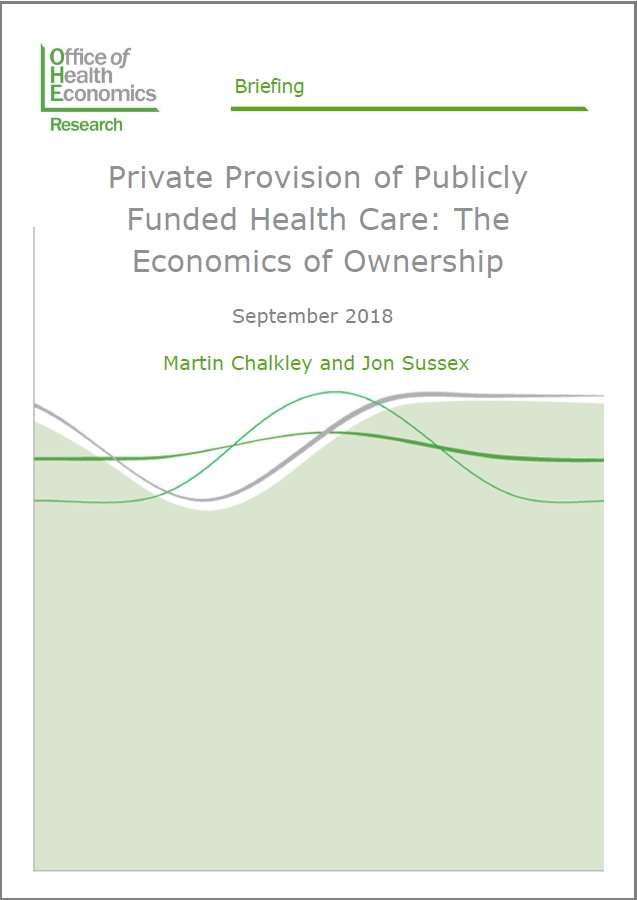This OHE Briefing outlines the NHS ownership debate through the lens of economics. The aim of the Briefing is to improve understanding of how economics can…
This OHE Briefing outlines the NHS ownership debate through the lens of economics. The aim of the Briefing is to improve understanding of how economics can or cannot help to resolve the question of whether the private ownership of health care provision is good or bad. The economics literature that informs this overview includes: the theory of the organisation of production; theories of behaviour and motivation and the role of incentives and payments in influencing decisions.
This OHE Briefing outlines the NHS ownership debate through the lens of economics. The aim of the Briefing is to improve understanding of how economics can or cannot help to resolve the question of whether the private ownership of health care provision is good or bad. The economics literature that informs this overview includes: the theory of the organisation of production; theories of behaviour and motivation and the role of incentives and payments in influencing decisions.
There are strongly stated concerns regarding the increasing use of non-publicly owned, especially for-profit, firms to provide services: concerns that the NHS is being undermined, that future services will be at risk or even that health care that is free at the point of delivery – a key tenet of the NHS – is about to be abandoned. There are, however, also staunch defenders of the role of the private sector in health care who argue that private providers increase patient choice, reduce waiting times and drive innovation and efficiency improvements. Depending on the viewpoint, private ownership is either a disaster or a salvation for the NHS.
This OHE Briefing outlines the NHS ownership debate through the lens of economics. The aim of the Briefing is to improve understanding of how economics can or cannot help to resolve the question of whether the private ownership of health care provision is good or bad. The economics literature that informs this overview includes: the theory of the organisation of production; theories of behaviour and motivation and the role of incentives and payments in influencing decisions.
